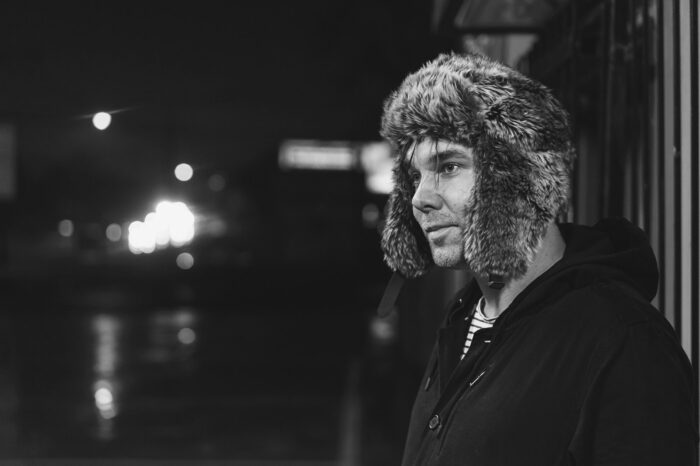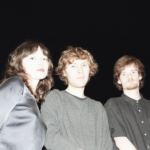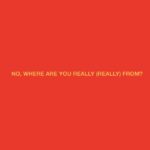Artist Interview: Mountain Time
Posted: by The Alt Editing Staff

Chris Simpson is making the music he wants to make. Last year’s Music for Looking Animals, his first record under the Mountain Time moniker, is lusher and richer than any of his previous projects, packed with strings, keys, and horns. It’s reminiscent of the music Simpson grew up with. It’s pretty, intricate, and layered enough to find something new with each listen. Still, though, it retains the intimacy that fans of Mineral, The Gloria Record, and Zookeeper expect from the singer-songwriter. The Alternative spoke to Simpson to discuss Music for Looking Animals and reflect on his career.
The Alternative: I’m gonna start with a really really exciting first question. How’s it going? How have you been? How have you been holding up through this whole thing?
Chris Simpson: Pretty good. It’s a lot for us with four young children who are not going to school currently, doing all that from home online. It’s a lot of people together all the time. I am a bit of a homebody to begin with, so I think there was a period earlier in the pandemic when I just really enjoyed the enforced change of pace, not having to constantly be running, taking kids to different places, just all hanging out. Some of that has worn off nine, ten months later, however long. I do really enjoy spending time at home with my family, and it’s been a lot of that.
This was your first release with Spartan Records. How did you decide to go with them for this one?
I looked at the long list of people who’ve reached out to me to put out the record, and they were the only ones on it. So it made sense. No, that is true, but something felt good about it. John I haven’t known personally before this, but he interviewed Mineral back in the original Mineral days in Virginia somewhere, where he’s from, for a zine. I think Washed Up Emo just put up a recording of it. He just popped into the van with us. He’s been a fan of my music for a long time, and after that he worked in the street team in Virginia for the release of EndSerenading. Then he ended up moving to California and working for Crank, the label Mineral was on. They had some other companies under the Crank umbrella, companies doing more stuff than just the label. Then he was working with major labels for a few years. Now he lives in Seattle – he had kids, settled down. For the last handful of years he’s been doing Spartan on his own out of his house. He has obviously a lot of experience and know-how, and also a lot of passion. He reached out and it felt right. It felt full circle in a lot of ways. He was like I said the only one who said let’s do this.
That makes a lot of sense if you knew him. It also makes sense since I know he’s put out the new Giants Chair stuff and just did The Farewell Bend In Passing rerelease.
He very much came up listening to and appreciating that music.
Mountain Time, even though you might’ve come from that scene, is obviously very different from that sort of stuff. Is it fair to say this project is closer to the sort of music you listen to?
One-hundred percent accurate, yes. And that’s changed somewhat over the years, but I’d say since probably the early 2000s. Not long after Mineral this was where I landed. I’m very interested in ‘60s, ‘70s music. I think this really traces back to growing up. A lot of the music my mom listened to – she listened to a lot of ‘70s music – really stuck with me. I have a theory – you know how astrologers, if they’re gonna make you a natal chart, all they need is your exact moment you were born, exact place you were born, almost like they take a snapshot of what was going on with the stars, then things can be assumed or brought out from that? I have a theory that may or may not be true, but feels true to me, that there’s something about that moment you’re born. I feel like the music that was happening around that time, the closer I get to that era, the more I feel like this is me.
For the two new Mineral songs that you put out, “Aurora” and “Your Body Is the World,” was it difficult to try and get yourself into that headspace at all when you were writing?
It was extremely difficult, I feel like more so lyrically and vocally than musically. Musically it was difficult too, but when we craft the music I feel like part of a team effort, like I don’t have to do all the work. We’re kinda working and shaping music and arrangements together. When that gets done it’s me alone in a room having to come up with lyrics and vocals. It definitely took a long time. There’s nothing fun about the process when you’re doing something like that. It feels like beating your head into a wall over and over, just chipping away at something, trying to find something that works. It’s so exciting and rewarding when you have that breakthrough. That’s what that process felt like for me. I had a lot of ideas along the way that I knew just didn’t feel right. Not like complete lyrics for a song and scrap them. I had lyrics and I just knew I wasn’t in the right ballpark. But like I said, very rewarding when you keep chipping away and you find what works. I feel like what I came up with was appropriate for the material and strikes a balance between what Mineral was and who I am now.
I believe you’ve said before the lyrics for “Aurora” were initially lyrics for a Mountain Time song.
Not all of them, but yeah, the beginning. That first verse. I guess some from the end too. I had a song I was working on called “It’s Always,” just the first two words of the song. I had it off and on for a while working on it, but never really recorded it with Mountain Time. When we first started working on the Mineral songs I had no idea where to start lyrically. That was the most recent song I was working on lyrically and I just felt like it was a worthy sacrifice to steal these lyrics. Then I think it’s important too that I used them as a springboard of sorts and used them to flesh out an idea that worked more with Mineral. Having those lyrics as a starting point really helped.
I think in the same interview you said it didn’t really feel like Mineral for a while. Do you feel like the lyrics you write for Mineral and the lyrics you write for Mountain Time are completely separate entities?
I don’t, really. I think they’re different. If you look at the lyrics I wrote in Mineral when I was 23 or whatever and the lyrics I write now, you can note differences, but they don’t feel like different entities. They’re both the result of trying to express myself at the time, and I feel like I’m writing for the same reasons, expression, communicating what’s inside of me.
I’ve noticed that you have quite a few songs about your catalog that reference Madison and Monroe – are these real places?
Yeah they’re streets. I grew up on a street called Madison Way, and Monroe was the adjacent street that led out of our neighborhood.
Yeah I noticed things like that recur. Like the age 14 seems to come up frequently in your lyrics and it kind of makes it all feel like a sort of cohesive body of work throughout the time that you’ve been making music.
Yeah, important things happen when you’re young that I think stay with you through your whole life that always seem like landmarks, things you always look back on. I think that’s where that comes from. It’s funny, like I think – I imagine everyone does that but maybe that’s not true – some of my favorite writers, Van Morrison, until he got to the point that he’s sorta the workingman’s R&B, blues guy, he was always writing about the same period of his life, where he came from, how he grew up.
I know you’ve said before that the songs on Music for Looking Animals were written at various points, recorded at different times. Did you know that the eight songs that would be on this record would be like one record?
Definitely not. When I first started writing on my own, after The Gloria Record, I had a real prolific period, when I wrote forty songs probably. Seven of the eight songs on Music for Looking Animals came from that period, as far as when I wrote them. Some of them have been recorded a handful of times since then, but never felt the way I wanted. They’re songs I’ve kept wanting to work on. There was actually a nice break – there was the Zookeeper period when I wrote those songs, then we started having kids and I wasn’t writing as much, then shortly after the kids I wrote the Pink Chalk album which has mostly new stuff, stuff written during that period, maybe a couple songs date to the original Zookeeper. Then there was the Mineral reunion – just a lot of time I wasn’t working on Zookeeper. With Mountain Time, the Mineral tour ended and I wanted to make another record. I loved working on Pink Chalk with a friend of mine who recorded and helped produce it, and I wanted to make another record with him immediately, not having much in the way of new material. I had one new song, “Foretold in G,” but I basically just made a list of my favorite songs from that initial batch that hadn’t been properly finished. It was nice to have a period where I hadn’t thought about them so I could approach them fresh. I could start from the ground up. That’s been why those eight songs are from that period, but there are others, but we kept shortening the record to fit what I wanted. We started with probably eleven, twelve songs.
Was it at all strange then to try and revisit those lyrically or did it not not really feel that distant?
It didn’t really feel that distant. I really feel like, even though the name changed, I look at this all as the same body of work that started with those Zookeeper songs.
It seems like every successive Zookeeper, Mountain Time release got a little bit more textured. That seem like a fair way of describing it?
I do. I think the initial recordings, the EP and LP, I was interested in the idea of having as many people as possible and creating this chaotic, hopefully magic, thing. I wasn’t interested in things being well arranged or rehearsed. It was more about the spirit of it. Pink Chalk I started more on my own, ended up playing a lot of the instruments myself. I actually was able, starting that way, to think about what textures I wanted to add, where with the first EP and LP it was like, “What actually works with the song?” It was taking out a bunch of stuff. With Pink Chalk, it was, “What can we add?” A lot more thinking involved, planning involved. Even with that said it was fairly quick. With Music for Looking Animals, every time I make a record, I look back and see the things I don’t want to do next time, and so I knew going in I didn’t want to play all the instruments myself. I wanted a drummer who could play in time, as good of players as possible for each instrument, people who – that was their instrument. I wanted to do more strings, horns, background singers, those kinds of textures, choose those over throwing in a guitar or keyboard. Each time there’s an idea of what’s interesting.
It definitely seems each record you’ve done has gotten to sounding more organic.
Yeah, definitely. I think that’s a result of just getting better at finding a way to produce the sound I want to hear. When you’re 23, you have some grandiose idea of how you want things to sound, but you’re four guys with guitars and you don’t have money to explore anything else. You don’t, also, have time to wait. You just want to play. There’s something really cool and raw and immediate about that approach. Over the years though I’ve thought more about how I want things to sound. A lot of that is just experience.
Are there any songs that you’ve in your catalog – whether it’s Mineral, Gloria Record, or Mountain Time – that you feel like you’re particularly proud of?
I feel I could pick things out from throughout the catalog, because I remember specific moments of joy at finishing songs, how things came out. I remember feeling that way with the title track from Start Here. I was just so happy that it came into existence. There are moments that surprise you when you finish and are surprised you made that. I think, more specifically the question of the things I’m proud of, I had a very special feeling toward the Music for Looking Animals version of “Becoming All Things.” Something about the way that song came together – it was the first one that made me realize that I could build the record around what I wanted to. I definitely feel like I was excited about “The Last Word Is Rejoice,” which also felt different in a way. The end of EndSerenading I felt very excited about. I think I could go through every record and find examples of that feeling. The instrumental opener and closer on The Gloria Record EP I felt very excited about. When you see yourself doing something different I think you feel your body of work expanding. It’s exciting.
If you were to go back to the Chris who played in Mineral or the Gloria Record i need to sit him down and play this record for him, how do you think he would feel about it?
I honestly think he’d love it because I know regardless of what sound I was making with those bands I’ve always been very drawn to orchestrated, orchestral kinda beautiful things. A lot of that goes back like I said to listening to ‘60s, ‘70s stuff with my mom. There was something kinda ethereal about the music from that time. I love that there was strings in everything. It didn’t matter if it was pop, jazz, even like David Bowie, glam rock, there was strings. I think I would’ve liked it. Even during Mineral, the stuff I was more into was Low, Red House Painters, Bedhead, a lot of slow, pretty stuff.
It comes through on EndSerenading for sure.
Yeah, I think that’s where that influence comes through. When you make a first record, you’re four people coming together from different places and I feel like your first record is just whatever happens when you throw those four backgrounds together. The second record it feels like you have more time to think about it. That’s a bad thing, in a lot of ways. I feel like the things I listened to as an individual came through a lot more.
Music for Looking Animals is out now via Spartan Records
–
Zac Djamoos | @gr8whitebison
The Alternative is ad-free and 100% supported by our readers. If you’d like to help us produce more content and promote more great new music, please consider donating to our Patreon page, which also allows you to receive sweet perks like free albums and The Alternative merch.










